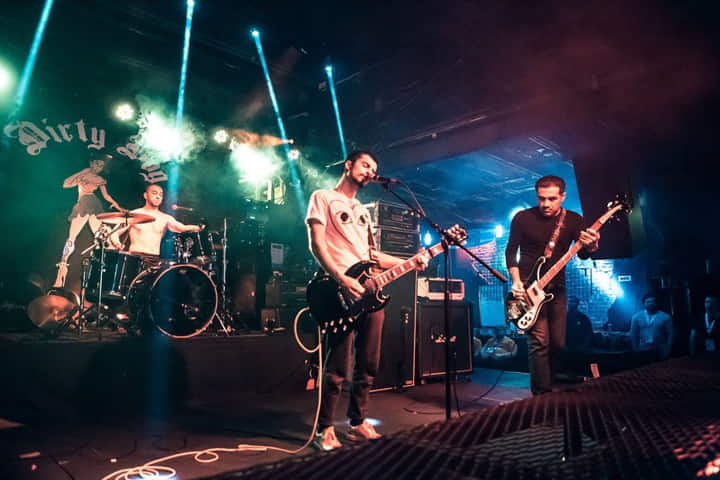Like musicians in Afghanistan who are worried about how things will pan out with the Taliban assuming power in Afghanistan, Afghani artists settled abroad are equally anxious about the situation.
For many it is a repeat of what they had seen or experienced in the past, like the popular young band Kabul Dreams. Formed in 2008, the group through its innovative compositions won loyal fans home and abroad. Besides successful tours to Europe and the US, they cut successful albums “Plastic Words” in 2013 and “Megalomaniacs” in 2017.
With all this name and fame came threats of death from those who sympathised with Taliban forcing this three-member band to leave their country in 2013 and seek asylum in the US.
In an article in the nationalnews.com, Sulyman Qardash, who is the singer and guitarist of the band and San Francisco based described the pictures of Afghanis leaving the country heart-wrenching. “It was hard to watch because not only did it bring a lot of memories back, but because it doesn’t mean that they are suddenly now all of safe. It’s actually the beginning for more fear and uncertainty.”
The other present member of the band is Siddique Ahmed while Raby Adib and Mojtaba Habibi Shandiz were earlier part of the band.
Also read: Cannes Award winner Shahrbanoo Sadat says Afghanistan situation has changed her cinema forever!
Making a poignant observation Qardash said for Afghanis who are seeking refuge the going will be tough. "It is going to be so hard for them to prove that their lives are in danger. A lot of my friends, some of whom are artists, went to Europe and had their asylum applications denied because there was no proof. Not only did they have to prove their life was in danger, but they have to relive that trauma all over again for one person to eventually decide if it was true or not.”
Qardash was just three when his family had to flee to Uzbekistan in 1994 to escape the Taliban. In a music school he learnt the guitar and CDs gave him his fill of the latest international rock music. Returning to Kabul in 2008 with the Taliban out, he started a band.

Kabul Dreams band members Sulyman Qardash and Siddique Ahmed
The initial days were really tough.
“We had some problems finding a place to rehearse. A lot of Afghan traditional music is played with an acoustic guitar. Once we found a place, plugged in the speakers and started playing, within 10 minutes the laKabul Dreams band members Sulyman Qardash and Siddique Ahmed
ndlord would come and kick us out. To be fair, he would say we had to leave because he would lose all his other tenants. Eventually we found ways to soundproof the rooms.”
For public performances, they had a few cultural centres and local parks.
Yet the shadow of Taliban and conservatism kept haunting them like shadows.
“We would receive notes or be confronted by people who are extremist. We knew this from the way they dressed and the references they give when they are talking to us. They would say our music is western propaganda and it belongs to the infidels. One person said this was the second time they watched and if there will be a third time you will disappear,” recalls Qardash.
Also read: Young Afghan pianist Arson Fahim says musicians are afraid of Taliban and hiding instruments
Despite observing caution like moving in large groups for safety, they finally decided to move out.
Having left Afghanistan, Qardash still praises the country for its transformation once the Taliban lost its hold. “There has been a lot of changes and there is freedom of speech and expression…And that’s because people worked very hard to make those changes.” This is the reason why the band's songs are in Dari, the most widely spoken language and celebratory (like “Sadae man” and “Fasl”) while the English tracks have a political message. Kabul Dreams will belt out more numbers bringing to the fore people’s struggle.
Qardash describes Kabul’s music scene as resilient even if it is going through a low ebb now. Musicians do get in touch with the band to get advice. Cautioning them he said: “When we were back there it still wasn’t even safe then and with what is going on now you have to be even more careful.”



















